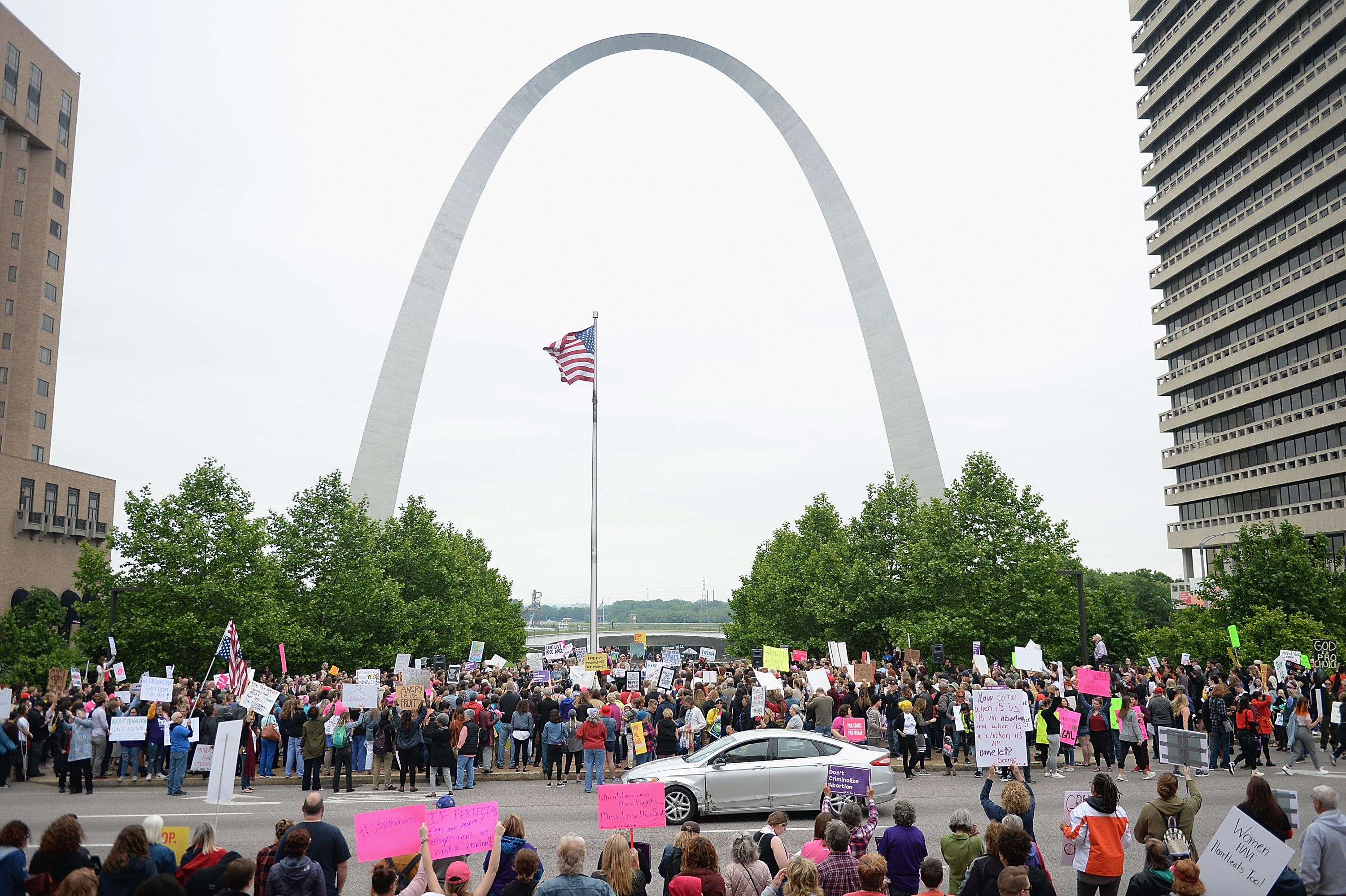Missouri could soon be the first state without an abortion clinic since 1973


A free daily email with the biggest news stories of the day – and the best features from TheWeek.com
You are now subscribed
Your newsletter sign-up was successful
Missouri could soon become the first state in the U.S. without a functioning abortion clinic since the Supreme Court's Roe v. Wade decision in 1973, CBS News reports.
Planned Parenthood said in a statement on Tuesday that the last remaining clinic in the state, which is located in St. Louis, expects to be shut down within 72 hours, as Missouri's health department refuses to renew its annual license to provide abortions in the state.
The news comes after Missouri lawmakers passed and approved a bill banning abortions after eight weeks, the lone exception being in cases of medical emergencies. The bill is one of several restrictive laws passed by states in recent weeks as part of a plan to challenge Roe v. Wade at the federal level. Refusing to renew the lease on the clinic is seemingly another way to effectively eliminate abortion in Missouri, despite the fact that it remains legal.
The Week
Escape your echo chamber. Get the facts behind the news, plus analysis from multiple perspectives.

Sign up for The Week's Free Newsletters
From our morning news briefing to a weekly Good News Newsletter, get the best of The Week delivered directly to your inbox.
From our morning news briefing to a weekly Good News Newsletter, get the best of The Week delivered directly to your inbox.
The health department's potential decision to not renew reportedly stems from three issues — new requirements for the clinic's state-mandated counseling, an additional pelvic exam now required for abortion patients, and the health department's outstanding request to interview seven physicians who provide care at the clinic as part of an investigation into "deficient practices." It's the third reason that could prove to be the sticking point because not all of the doctors are Planned Parenthood employees, leaving the matter outside of their control.
Planned Parenthood is preparing to file a lawsuit in the Circuit Court of St. Louis later on Tuesday, The Guardian reports.
A free daily email with the biggest news stories of the day – and the best features from TheWeek.com
Tim is a staff writer at The Week and has contributed to Bedford and Bowery and The New York Transatlantic. He is a graduate of Occidental College and NYU's journalism school. Tim enjoys writing about baseball, Europe, and extinct megafauna. He lives in New York City.
-
 Political cartoons for February 16
Political cartoons for February 16Cartoons Monday’s political cartoons include President's Day, a valentine from the Epstein files, and more
-
 Regent Hong Kong: a tranquil haven with a prime waterfront spot
Regent Hong Kong: a tranquil haven with a prime waterfront spotThe Week Recommends The trendy hotel recently underwent an extensive two-year revamp
-
 The problem with diagnosing profound autism
The problem with diagnosing profound autismThe Explainer Experts are reconsidering the idea of autism as a spectrum, which could impact diagnoses and policy making for the condition
-
 Judge blocks Hegseth from punishing Kelly over video
Judge blocks Hegseth from punishing Kelly over videoSpeed Read Defense Secretary Pete Hegseth pushed for the senator to be demoted over a video in which he reminds military officials they should refuse illegal orders
-
 Trump’s EPA kills legal basis for federal climate policy
Trump’s EPA kills legal basis for federal climate policySpeed Read The government’s authority to regulate several planet-warming pollutants has been repealed
-
 House votes to end Trump’s Canada tariffs
House votes to end Trump’s Canada tariffsSpeed Read Six Republicans joined with Democrats to repeal the president’s tariffs
-
 Bondi, Democrats clash over Epstein in hearing
Bondi, Democrats clash over Epstein in hearingSpeed Read Attorney General Pam Bondi ignored survivors of convicted sex offender Jeffrey Epstein and demanded that Democrats apologize to Trump
-
 El Paso airspace closure tied to FAA-Pentagon standoff
El Paso airspace closure tied to FAA-Pentagon standoffSpeed Read The closure in the Texas border city stemmed from disagreements between the Federal Aviation Administration and Pentagon officials over drone-related tests
-
 Judge blocks Trump suit for Michigan voter rolls
Judge blocks Trump suit for Michigan voter rollsSpeed Read A Trump-appointed federal judge rejected the administration’s demand for voters’ personal data
-
 US to send 200 troops to Nigeria to train army
US to send 200 troops to Nigeria to train armySpeed Read Trump has accused the West African government of failing to protect Christians from terrorist attacks
-
 Grand jury rejects charging 6 Democrats for ‘orders’ video
Grand jury rejects charging 6 Democrats for ‘orders’ videoSpeed Read The jury refused to indict Democratic lawmakers for a video in which they urged military members to resist illegal orders
